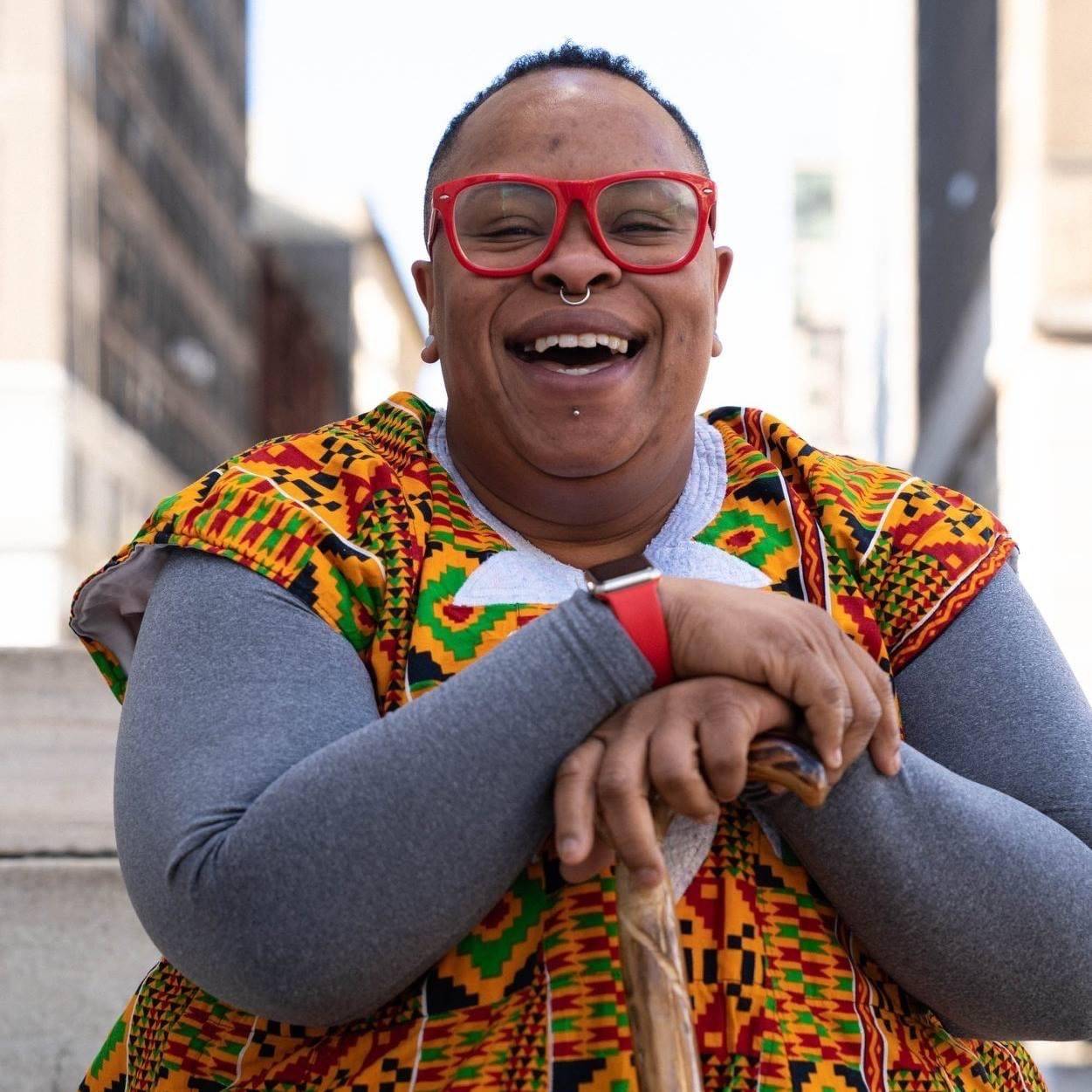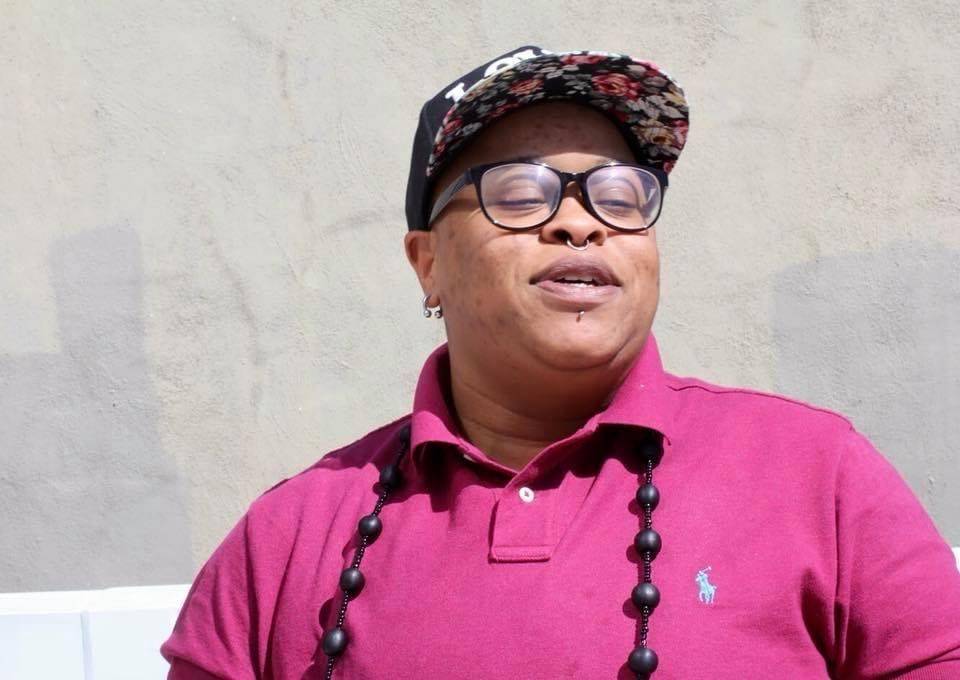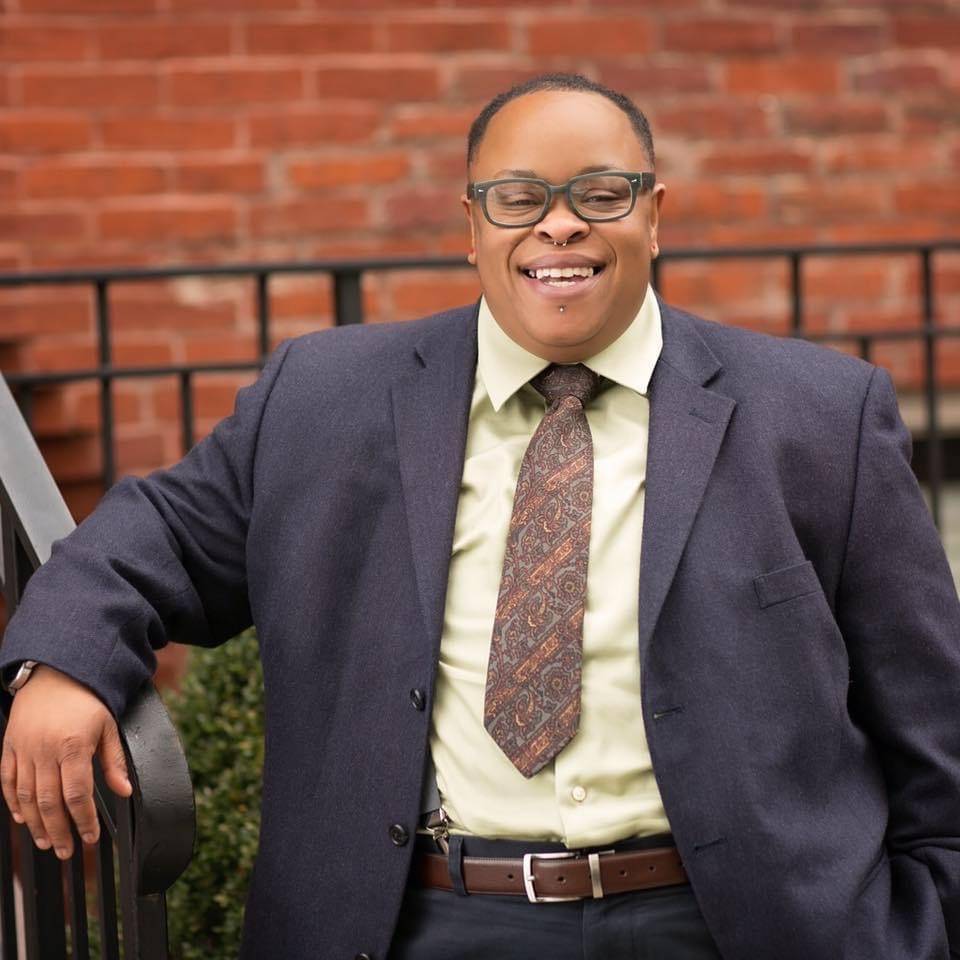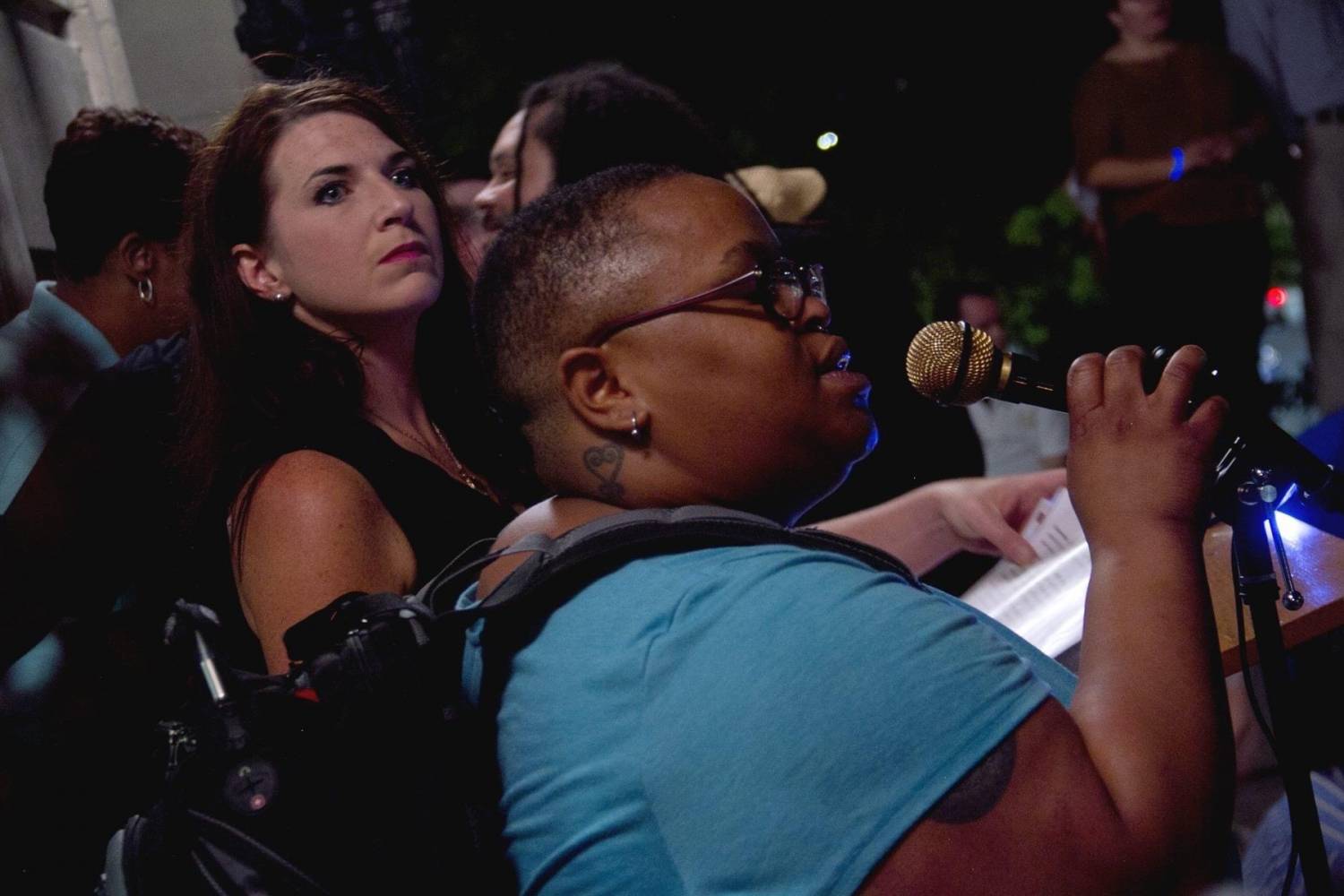By Kellee Terrell


By Kellee Terrell

There's power in telling your story.
By coming forward to share your experiences, you have the opportunity to humanize a statistic, add a face to a pressing issue to show who exactly that law, that epidemic, that system of oppression, affects. But most importantly, by speaking truth to power, you are reminding others who are going through similar obstacles that they are not alone.
As the Supreme Court gears up to render decisions on the future of Roe v. Wade, the most consequential abortion rights case in nearly 50 years, the idea of who is asked and allowed to tell their stories is even more pressing than ever. To hear the media and even some of the organizations on the ground doing the work tell it, the only people who need abortions are cisgender heterosexual women. (Which we know isn't true.) Not to mention, just trying to be inclusive by using the phrase "pregnant people” instead of “pregnant women” can throw some folks into a tizzy.
But given that trans, queer, and nonbinary people most definitely need and get abortions, there is a danger in erasing their abortion stories from this fight, says Cazembe Murphy Jackson. Since 2015, the Black, Southern, queer, trans organizer has been sharing his abortion story hoping it will encourage reproductive justice groups to be more inclusive and inspire LGBTQ organizations to move outside their silos and take on the issue of reproductive rights. But most importantly, he wants more LGBTQ people to come forward and join him in changing the narrative.
*Trigger Warning: This article discusses sexual assault, trauma, and mental health.
Kellee Terrell: During our conversation you shared that Trayvon Martin's death in 2012 inspired you to become an activist. Has that work played a role in you coming forward to share your abortion story with others?
Cazembe Murphy Jackson: Yes. Because organizing, fighting, and speaking out isn't just for my rights but the rights of other people who look and live like me. Here's the thing: Because I'm Black, I understood that I was being treated differently because of my race. I also grew up poor, so I always had a class analysis but didn't have the words for it. Looking back, I think I was always trans, despite identifying as a lesbian at the time, but I didn't have the language for that either. So, who I am made me aware, but like most people, I was an armchair activist, unaffiliated to an organization and on Twitter telling people to sign petitions, hyping up marches, and even attending some too. Not to knock digital activism, because it's important, but I was moving toward wanting to build power and dismantle oppression, not just do something that made me feel good. After working with Concerned Citizens for Justice, I started talking about my abortion.
KT: On your terms and comfort level, can you share your abortion story?
CMJ: It's not an easy story to tell because there's so much trauma involved. It happened in 2001 during my junior year at Sam Houston State. It was the week before finals, and my friends and I stayed at the library longer than usual. They left earlier, and I ended up walking home alone, which I normally didn't do. But that night, and on my way home, this truck of four guys pulled up on me. Now, mind you, I was what I thought at the time as masculine-presenting —I had on a big white shirt, big red cargo shorts and a pair of Jordans—but ultimately, they raped me anyway. Afterward, they left me outside my dorm.
KT: I am so sorry that happened to you.
CMJ: Thank you. I went through a lot—being depressed, not going outside at all, just keeping to myself. Shortly after, I found out I was pregnant. I didn't have any money, and I couldn't deal with it all, so I packed up my stuff, dropped out of school and went home to Austin.
It just so happened I found a Planned Parenthood in my neighborhood and found out that the abortion would cost $300. I didn't have the money and there wasn't an abortion fund back then to help me. But the way the ‘hood is set up is that there's always a payday loan place on every corner, and so I got a payday loan to pay for my abortion (which, because of high interest, took me six months to pay off). A few days later, because they make you wait in Texas, I had to come back and get the abortion pill. When I went home, I just remember feeling bad, having cramps, and waiting for it all to pass. While I had some issues around misgendering while at the clinic, they ultimately saved my life because through the questions they asked me about my mental health, they saw that I was depressed and got me into therapy that was free.
Looking back, it blows my mind because when I started meeting other people who talk about their abortions, they would say, "It's the best thing that ever happened to me." Granted, my abortion was a good thing; it was just necessary, but I definitely wouldn't say it was the best thing that ever happened to me.

KT: That perspective is important because there isn't just one way to talk about abortion or even feel about it.
CMJ: Exactly. I also want to point out that there's a lot of shame that comes with being raped, and I feel like the movement and [society in general] are very sympathetic to rape survivors within reproductive justice. That's why I never just tell my story. I try to connect it to other issues and other people's stories because I don't want people to be OK with my abortion story because I was raped and not be OK with someone else’s because they weren’t assaulted. We have to be OK with all abortion stories because all of those stories are important.
KT: Given that your abortion happened nearly 20 years ago and it's now 2021, one would think that more trans, non-binary, and queer people would be part of the conversation, and sadly, that's not the case. That has to be frustrating.
CMJ: It's frustrating for sure. I've been organizing since 2012 and didn't start telling my story until 2015. Here I am, a person who has this lived experience, but I'm not hearing anything about trans people being a part of the reproductive justice movement. So often, people will tell me, "I have never seen a trans person talk about this" or "You're the first person I've heard talk about this issue."
Meanwhile, queer, trans, and gender non-conforming folks plan families, whether we plan not to have children or to have children—everyone is making a plan one way or another. We are participating in everything reproductive, whether condoms, abortions, or birth control, and people need to understand that our experiences are just as relevant as cis straight people's experiences.

KT: What more can both reproductive justice and LGBTQ organizations do to ensure that they are not erasing LGBTQ people from conversations about abortion?
CMJ: If we want to lift up queer and trans people in the conversation, we need to be present, not only by just talking but by actions. You don't need a lot of money to do this either; you just have to want to be inclusive and actually do it. I look at We Testify, an organization I am a part of, and founder Renee Bracey Sherman saw a need to have [diverse] people tell their stories and trained them to tell their stories. She makes sure queer people are involved.
Another thing that orgs can do is actually hire queer and trans people, and then they can tell you for themselves why it's important to be included and be a force implementing the strategies to do just that. It's not enough to be included in the conversation—we need to lead as well. We just need more of us because I don't want to be the only one or one of a few.
KT: Looking at the stats, we know that LGBTQ folks are getting abortions, yet even trying to find folks to be interviewed for this project was extremely difficult. Do you think that internal and communal stigma plays a role in this erasure too?
CMJ: Abortion, in general, carries a lot of stigma, but in our community, talking about abortion is also very taboo. Some trans men are passing or in the closet, and don't want to talk publicly about abortions because it outs them. Even to this day, I have friends who tell me that I shouldn't be sharing my story because people won't respect me as a man if I am talking about abortion. So yeah, it's complicated.

KT: That's something to sit with, but I think this really speaks to how we need to expand the way we talk and think about masculinity. That, and be way more intentional about talking about who has a uterus, a vagina, and periods. Because when we normalize including trans, queer, and nonbinary folks into that narrative, hopefully, more inclusive abortion conversations may come easier.
CMJ: Absolutely. You know, there are still people out there who think we can't get pregnant because trans men take testosterone. Uh, we can and we do.
KT: Finally, with Roe v. Wade being seriously threatened with a number of Supreme Court cases, what do more LGBTQ people need to know?
CMJ: They need to know that these laws are part of the longer-term strategy that the right has been building to criminalize poor Black and brown people, who are also part of our community. Whether Roe is reversed or not, rich white women are still going to have abortions, so this is not going to affect them. It’s going to affect the poor young and [queer, trans, and binary] folks who don’t have cars to drive across state to have access. Abortion is healthcare. We should have access to it in the same way we should have access to insulin if we were diabetic.
To learn more about what’s at stake for LGBTQ people in the fight for reproductive justice, including access to abortion, read Lambda Legal’s FAQ, Abortion Rights at the Supreme Court: What LGBTQ People Should Know.
This interview has been condensed and edited for clarity.
Kellee Terrell is an LA-based award-winning journalist and filmmaker. Her articles and interviews have been featured in The New York Times, POZ Magazine, ELLE, Vogue, Shondaland, Essence, Vulture and Harper’s Bazaar. Follow her on Twitter @kelleent.